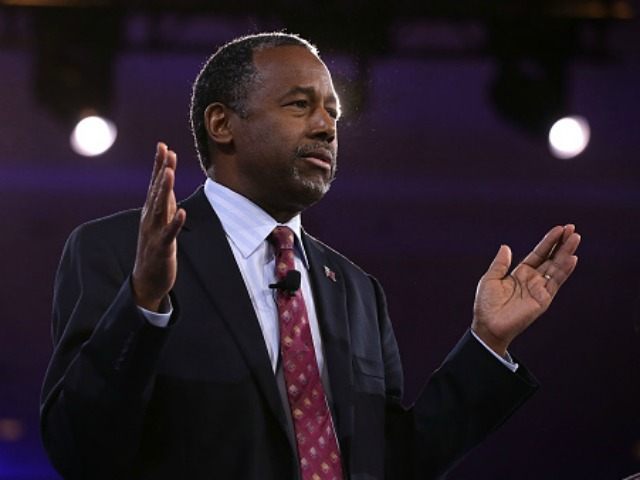As much as Democrats bemoan the decline of the middle-class, it’s ironic that liberal cities tend to be the most unequal. In 2014, 23 of 25 of the most financially unequal metros were represented by Democrats, according to data compiled by The Atlantic.
A prime culprit of this inequality is a labor-union supported regulation — a regulation that the incoming Housing and Urban Development (HUD) Secretary Dr. Ben Carson can help do something about.
Draconian rules against apartment construction have made it nearly impossible in many large cities to keep up the population growth. All over the country, especially in coastal metros, existing residents have created laws against development.
In San Francisco, for instance, it is essentially illegal to build apartment complexes in nearly half the city. Homeowners in the western half of the city have fought to keep neighborhoods from an influx of low-income and racially diverse residents, so they can preserve the growing market value of their two-story, single-family houses.
As a result, the median rent for an apartment has skyrocketed above $4000 a month, and less than 15% of existing residents can afford to purchase a home. HUD can play a vital role in stopping this anti-market behavior.
The department controls millions in funds for housing affordability, and has a legal discretion over how much it withholds from cities that deliberately hurt their own residents. Ben Carson should let liberal cities know that the federal government will not bail them out of a problem that the free-market can (mostly) solve.
I am mindful of small-government conservatives who believe the feds shouldn’t have a role in determining housing policy. The simple fact is that HUD exists and already has a lot of money. So long as Carson is in charge, he can be a champion of equality through free-market capitalism.
Moreover, unlike most of America, cities like San Francisco and New York have national economic implications. Berkeley economist Enrico Moretti estimates that the housing crunch in major cities, especially New York, San Francisco and San Jose, kneecaps national economic growth by roughly 10%, or about 1.6 trillion dollars (with a “T”).
A computer engineer is far more productive if she can move to San Francisco. Preventing people from moving to the most innovative places in the country hurts all Americans, especially as high-growth industries becomes an important global competitive advantage. HUD could concentrate its efforts against zoning regulations by just focusing on a few cities, where a small number of activist homeowners and labor unions are contributing to economic hardship across the country.
As Ben Carson begins to outline his strategy under the new administration, it’s important for him to know that he can be a champion for the free market and equality — in ways that liberals have not been.

COMMENTS
Please let us know if you're having issues with commenting.